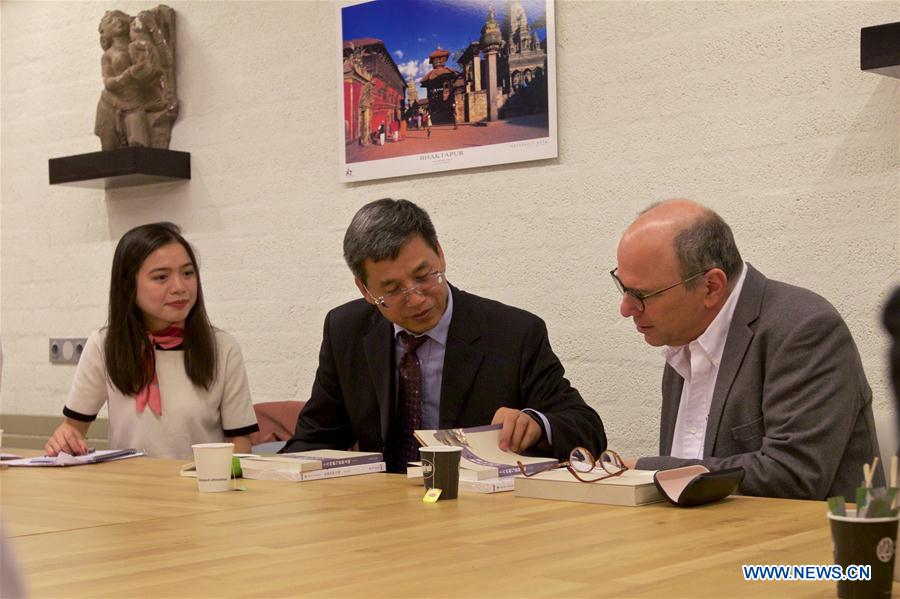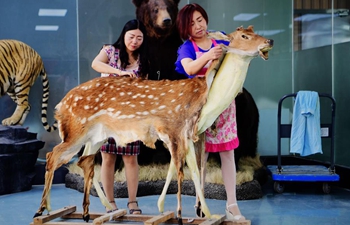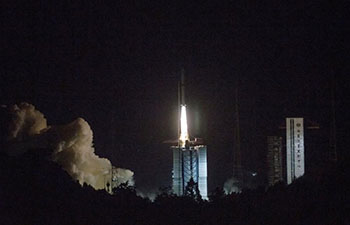
Zhang Yun (C), director of the Institute of History Studies of the China Tibetology Research Center, exchanges views with Professor Jonathan A. Silk (R) from Leiden University in the Hague, the Netherlands, May 25, 2018. A visiting Chinese Tibetan scholar delegation, led by Zhang Yun, on Friday briefed Dutch officials and scholars on the latest development of China's Tibet Autonomous Region and discussed cooperation in Tibetan studies. (Xinhua/Sylvia Lederer)
THE HAGUE, May 25 (Xinhua) -- A visiting Chinese Tibetan scholars' delegation on Friday briefed Dutch officials on the latest development of China's Tibet Autonomous Region and discussed cooperation on Tibetan studies.
The delegation met with officials from the Multilateral Organizations and Human Rights Department and from the Asia and Oceania Department of the Dutch Foreign Ministry.
Zhang Yun, head of the delegation and director of the Institute of History Studies of the China Tibetology Research Center, outlined the achievements Tibet has scored in sectors ranging from economy, culture, education to healthcare and environmental protection.
On the human rights situation there, Zhang said: "As China's development has entered the fast lane, all aspects including human rights in Tibet have achieved tremendous successes."
"Regarding differences on certain issues, we should stay frank with each other, learn from each other and communicate more with each other. We should especially try to understand each other's arguments, rather than stay biased and mount criticism," the Chinese scholar told Dutch hosts.
Arjen van den Berg, deputy director of the Asia and Oceania Department of the Dutch Foreign Ministry, agreed with Zhang's views on cultural differences. He said more exchanges are welcome as they can help share opinions and deepen understanding.
Members of the Chinese delegation discussed the current situation of Tibetan studies in China, Europe and the United States with Dutch scholars on Tibetan studies from Leiden University. Both sides expressed their willingness to boost exchanges, share research materials and expand cooperation.















